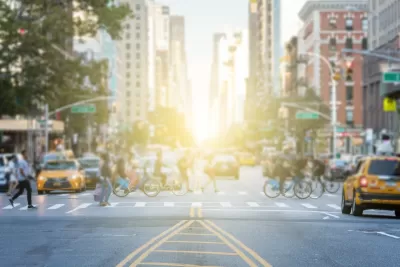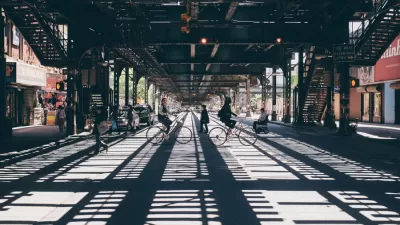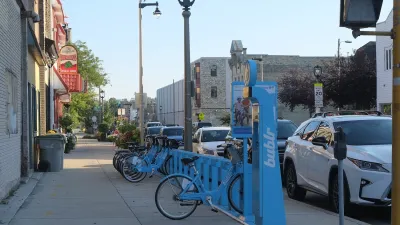Why a proposed bill that would require e-bikes, e-scooters, and other motorized mobility devices would be difficult, expensive to enforce, and ineffective.

In an op-ed in Streetsblog NYC, Shabazz Stuart argues that a proposed e-bike registration bill would be ineffective.
Stuart writes, “I’ve spent most of my career managing public space at the city’s third-largest Business Improvement District and championing the creation of a regional secure bike parking and charging network with my company, Oonee. As such, I can promise that if this bill becomes law, not only will it fail to achieve its own stated goals, it will stand alone as one of the most regressive urban transportation policies of the 21st century.”
Stuart notes that bike advocates have for decades been calling for more protected bike lanes and other infrastructure that makes it safe for people to ride e-bikes on city streets and not on sidewalks. Requiring all powered bikes, scooters, and other devices including motorized wheelchairs to be registered would be “expensive, difficult to enforce, prejudicial and practically useless.”
Other cities that have attempted bike registration programs have ended them, Stuart points out. “Registration mandates are notoriously difficult to enforce at almost every level of government. The federal government intended Real IDs to be the FAA standard in 2008, but the program suffered from low compliance, even with the full muscle of state DMVs and the specter of not being able to fly. Today, only 56 percent of Americans have converted, 19 years after the original goal of 100 percent.”
FULL STORY: Op-Ed: Council E-Bike Registration Bill Is Impossible to Enforce, Unnecessary … and Won’t Even Work

Trump Administration Could Effectively End Housing Voucher Program
Federal officials are eyeing major cuts to the Section 8 program that helps millions of low-income households pay rent.

Planetizen Federal Action Tracker
A weekly monitor of how Trump’s orders and actions are impacting planners and planning in America.

Ken Jennings Launches Transit Web Series
The Jeopardy champ wants you to ride public transit.

California Invests Additional $5M in Electric School Buses
The state wants to electrify all of its school bus fleets by 2035.

Austin Launches $2M Homelessness Prevention Fund
A new grant program from the city’s Homeless Strategy Office will fund rental assistance and supportive services.

Alabama School Forestry Initiative Brings Trees to Schoolyards
Trees can improve physical and mental health for students and commnity members.
Urban Design for Planners 1: Software Tools
This six-course series explores essential urban design concepts using open source software and equips planners with the tools they need to participate fully in the urban design process.
Planning for Universal Design
Learn the tools for implementing Universal Design in planning regulations.
Ada County Highway District
Clanton & Associates, Inc.
Jessamine County Fiscal Court
Institute for Housing and Urban Development Studies (IHS)
City of Grandview
Harvard GSD Executive Education
Toledo-Lucas County Plan Commissions
Salt Lake City
NYU Wagner Graduate School of Public Service





























